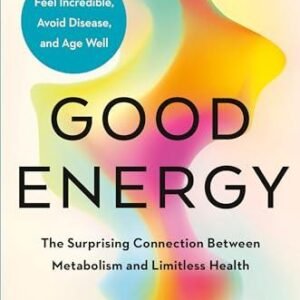In an era marked by the relentless pace of modern life, the pursuit of restorative sleep has become increasingly elusive for many individuals. Chronic sleep deprivation has far-reaching consequences, encompassing negative impacts on cognitive function, emotional well-being, and overall physical health. As a result, there has been a burgeoning interest in natural sleep aids as potential solutions to enhance sleep quality and facilitate recovery. This article undertakes a rigorous analysis of various natural sleep aids, including herbs, dietary supplements, and lifestyle practices, to evaluate their effectiveness in promoting restorative sleep. Through a synthesis of scientific research and clinical evidence, we aim to illuminate the mechanisms through which these natural alternatives may contribute to improved recovery outcomes, ultimately providing a comprehensive understanding of their role in contemporary sleep health strategies. As we delve into the nuances of these interventions, we will explore not only their benefits but also the considerations necessary for their optimal use, equipping readers with the knowledge to make informed decisions about their sleep health.
Table of Contents
- Understanding the Role of Natural Sleep Aids in Sleep Quality Enhancement
- Evaluating the Efficacy of Common Natural Sleep Supplements
- Exploring the Psychological and Physiological Benefits of Improved Sleep
- Integrating Natural Sleep Aids into a Holistic Wellness Regimen
- To Conclude
Understanding the Role of Natural Sleep Aids in Sleep Quality Enhancement
Natural sleep aids have gained significant attention as a viable alternative to pharmaceutical options for achieving improved sleep quality. Their role in sleep enhancement extends beyond merely facilitating sleep onset; they contribute to the overall architecture of sleep, influencing both REM and non-REM stages. Several herbal extracts and natural compounds have been studied for their efficacy in promoting relaxation and reducing insomnia symptoms. Commonly used aids include:
- Melatonin: A hormone that regulates circadian rhythms and improves sleep onset.
- Valerian Root: Known for its sedative properties, it can help reduce the time taken to fall asleep.
- Chamomile: Often consumed as tea, chamomile has calming effects that aid in sleep quality.
- L-theanine: An amino acid found in tea that promotes relaxation without sedation.
Significantly, the effectiveness of these natural sleep aids often varies based on individual biochemistry and the underlying causes of sleep disturbances. It is crucial to approach their usage with a tailored strategy, considering factors such as dosage, timing, and personal health conditions. Recent research highlights a need for more structured investigations into the synergistic effects of combining these aids, as illustrated in the following table:
| Natural Sleep Aid | Primary Benefit | Considerations |
|---|---|---|
| Melatonin | Regulates Sleep Cycle | Best for jet lag and shift work |
| Valerian Root | Reduces Sleep Latency | May cause morning grogginess |
| Chamomile | Calming Effect | Less effective in severe insomnia |
| L-theanine | Promotes Relaxation | May need to be combined with other aids |
Evaluating the Efficacy of Common Natural Sleep Supplements
Natural sleep supplements, often heralded for their perceived safety and minimal side effects, have garnered attention from those seeking relief from insomnia and other sleep-related issues. Key offerings such as melatonin, valerian root, and chamomile serve as popular options, but their effectiveness can vary significantly among individuals. Research suggests that melatonin, a hormone produced by the pineal gland, may be particularly useful for regulating circadian rhythms, especially for those experiencing jet lag or shift work disruptions. However, the efficacy of valerian root and chamomile, commonly touted for their calming effects, requires further investigation to substantiate claims surrounding reduced sleep latency and improved sleep quality.
A comprehensive examination of scientific literature reveals mixed results regarding the impact of these natural supplements. While some studies indicate moderate success, other trials have failed to demonstrate significant improvements in sleep parameters. An analysis of selected studies can shed light on this discrepancy, as noted in the following table, which compares the findings on the efficacy of these supplements:
| Supplement | Efficacy Rating | Key Findings |
|---|---|---|
| Melatonin | High | Effective for jet lag and shift work |
| Valerian Root | Moderate | Mixed results in clinical studies |
| Chamomile | Low-Moderate | Some anecdotal evidence, limited research |
Exploring the Psychological and Physiological Benefits of Improved Sleep
Sleep is fundamentally entwined with both our mental and physical well-being, serving as a critical pillar for overall health. Numerous studies suggest that adequate and quality sleep can lead to improved cognitive function, enhanced emotional regulation, and reduced anxiety levels. This psychological buffering effect allows individuals to better manage stress and promotes resilience against mental health disorders such as depression. The calming effects of natural sleep aids, such as valerian root or melatonin, can facilitate deeper sleep cycles, promoting REM sleep, which is essential for memory consolidation and emotional processing. As sleep is the brain’s time for housekeeping, effective recovery of neural pathways can enhance decision-making and creativity, dramatically influencing our daily lives.
Physiologically, the benefits of enhanced sleep manifest through optimized bodily functions and improved recovery rates. During sleep, the body engages in crucial repair processes, such as muscle growth, tissue repair, and protein synthesis, which are vital for maintaining physical fitness and overall resilience. Adequate sleep supports the immune system, reducing susceptibility to illness and enhancing longevity. The role of sleep in regulating hormones, such as cortisol and insulin, cannot be overstated; these hormones affect stress response and metabolism, respectively. Natural sleep aids, when utilized appropriately, can stimulate this biological rhythm, allowing the body to restore balance and promote homeostasis. The table below illustrates the interconnections between sleep quality, psychological well-being, and physiological recovery:
| Aspect | Benefits |
|---|---|
| Psychological |
|
| Physiological |
|
Integrating Natural Sleep Aids into a Holistic Wellness Regimen
Incorporating natural sleep aids into your wellness routine requires a balanced approach that synergizes with other health practices. Consider exploring a range of natural solutions, each contributing uniquely to your restorative sleep cycle. Some effective options include:
- Herbal Supplements: Chamomile and Valerian root can promote relaxation without the grogginess associated with synthetic sleep aids.
- Aromatherapy: Essential oils like lavender have been shown to reduce anxiety and enhance sleep quality through their calming properties.
- Mindfulness Techniques: Practices such as meditation and deep-breathing exercises can be paired with sleep aids to create a tranquil bedtime environment.
To ensure the effectiveness of your holistic sleep strategy, it’s beneficial to track how various natural aids affect your sleep patterns. Below is a simple comparison chart to help you analyze the effects of different sleep aids alongside lifestyle choices:
| Sleep Aid | Effectiveness | Integration with Lifestyle |
|---|---|---|
| Chamomile | Moderate | Easy |
| Valerian Root | High | Moderate |
| Lavender Oil | High | Easy |
| Meditation | High | Requires Commitment |
By continuously experimenting with integrating various natural sleep aids into your overall wellness regimen, you can effectively enhance your recovery and achieve a more restful night’s sleep.
To Conclude
the analysis of natural sleep aids reveals a multifaceted landscape of potential benefits and considerations. As our understanding of sleep’s critical role in overall health deepens, the exploration of herbal and holistic solutions presents an intriguing avenue for those seeking to enhance their restorative rest. While personal experiences with these interventions can vary significantly, the evidence suggests that certain natural aids—be it melatonin, valerian root, or other alternatives—may offer promising support for sleep quality and recovery.
However, it is essential to approach this topic with discernment. The efficacy of natural sleep aids can be influenced by a plethora of factors, including individual physiology, dosage, and lifestyle. Moreover, the lack of comprehensive regulatory oversight raises questions about the quality and consistency of these products on the market. Thus, consultation with healthcare professionals remains a prudent step for individuals considering these options.
As we move forward, continued research will be vital in uncovering the nuances of natural sleep aids and their role within the broader context of sleep health. By fostering an informed dialog about sleep recovery strategies, we can empower individuals to make choices that align with their health goals while prioritizing safety and efficacy. Sleep is not merely a passive state; it is an active and crucial component of overall well-being—one that warrants ongoing exploration and understanding.





